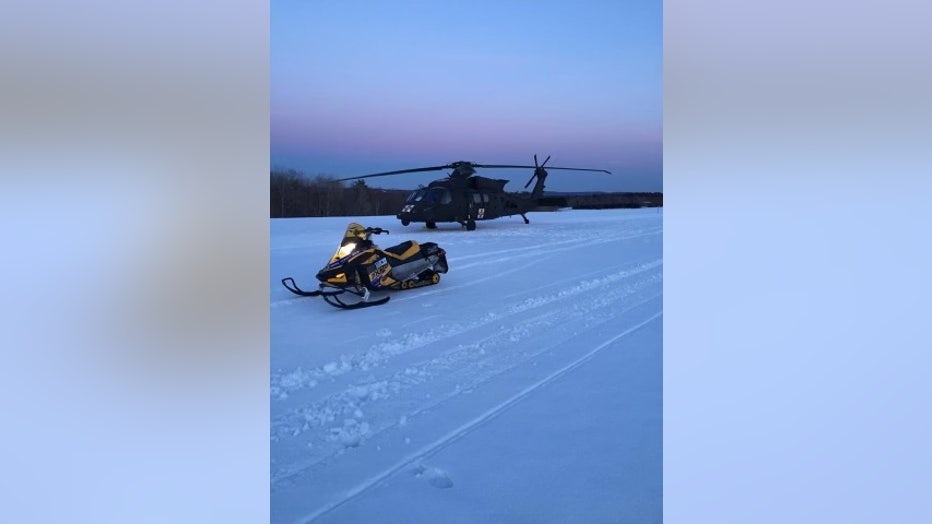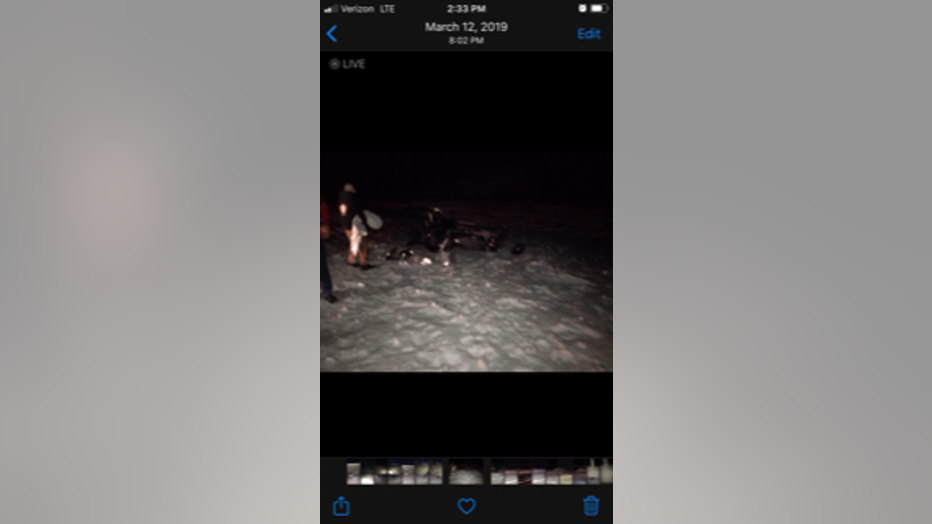Lawyer who crashed snowmobile into Black Hawk helicopter is awarded $3.3 million in damages

A federal court ruled this week that the U.S. government must pay a Massachusetts lawyer $3.3 million in damages following a March 2019 snowmobiling crash in which he collided into a Black Hawk helicopter that had been parked on a trail at night.
U.S. District Judge Mark Mastroianni ruled that the government was 60% responsible for parking the helicopter on a snowmobile trail after flying from New York’s Fort Drum to Worthington, Massachusetts, but also criticized Jeff Smith for not operating the snowmobile safely, for speeding and for wearing tinted goggles, according to The Associated Press.
"The court finds the government breached its duty of care in failing to take any steps to protect against the obvious risk of a camouflaged helicopter parked on an active snowmobile trail, in a somewhat wooded area, as darkness set," Mastroianni reportedly wrote. "The helicopter and area where it was parked were not illuminated or marked in any way."
Smith, who was airlifted to a trauma center with a dozen broken ribs, a punctured lung and severe internal bleeding following the crash, now struggles with simple tasks, including putting on socks or pulling up his pants, the AP reports.
He initially asked for $9.5 million in damages to cover his medical expenses and lost wages and to hold the military responsible for the crash.

"We are grateful for Judge Mastroianni’s thoughtful consideration of the complicated facts of this case," Smith’s lawyer Doug Desjardins said following the decision. "We believe justice was served, and the decision encourages public safety."
Smith’s lawyers argued that the crew of the Black Hawk helicopter that flew for night training was negligent for parking a camouflaged 64-foot aircraft on a rarely used airfield also used by snowmobilers.
The helicopter landed on an air strip approved by the Federal Aviation Administration and the crew members testified that trainings are often conducted in similar locations. However, Smith, who said he had snowmobiled on the trail more than 100 times, said the last time an aircraft used it was decades ago when he was a child -- and never a military aircraft.

The government attempted to dismiss the case several times, arguing that it could not be sued under the Federal Tort Claims Act because a policy decision was involved. The government also argued that the crew members weren't told that they were landing on a snowmobile trail and attempted to cast blame on Smith, claiming he was driving his sled more than 65 mph and that he had taken both prescription drugs and drank two beers before his ride.
The night of the accident, Smith said he was over at his mom’s helping fix a computer. He had a beer with dinner and another with his dad before setting off to meet his brother, Richard Smith, on the trail. Jeff Smith drove in the dark alongside farm fields and forests before going over a ridge. His headlights reflected off "something," he said, but Smith only knew it was a helicopter after the crash.
"I found him face down in the snow," Benjamin Foster, one of the Black Hawk crew members, told the court. "We rolled him on his back and I might remember yelling or telling one of my crew chiefs to grab some trauma shears and space blankets from the aircraft. ... I remember him gasping for breath."
The Associated Press contributed to this report. Read more of this story from FOX News.

